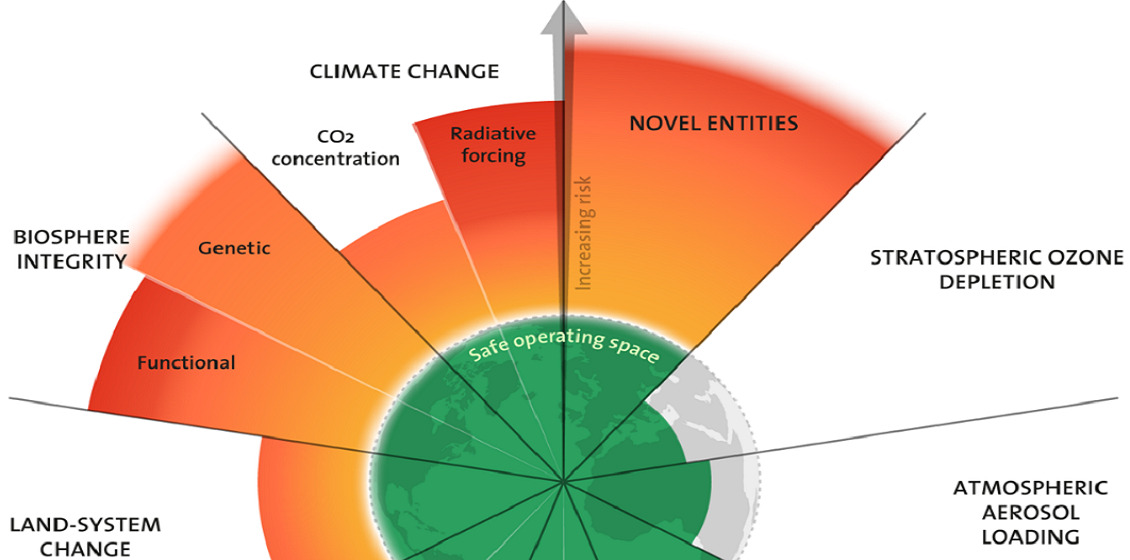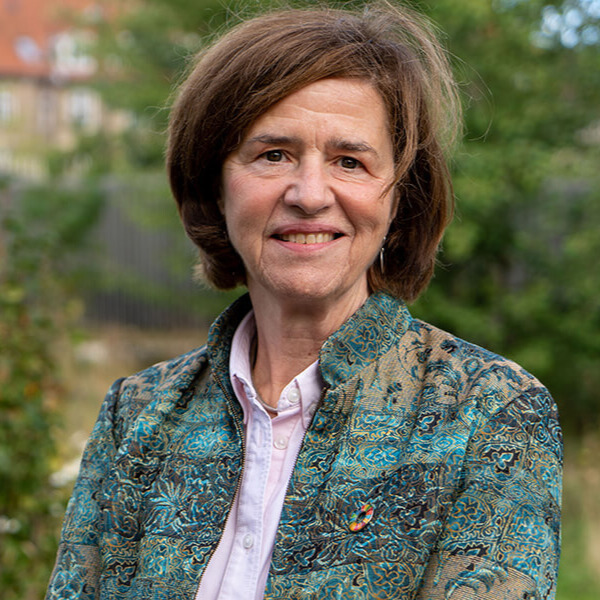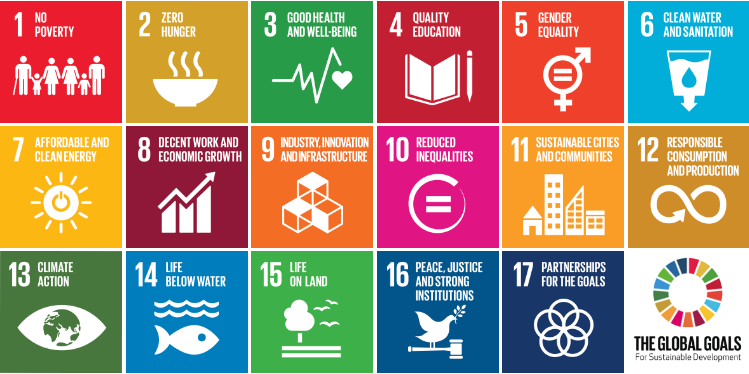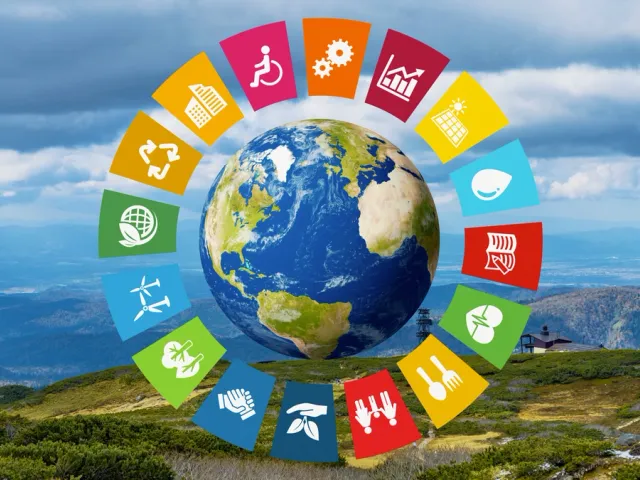Global climate change has exactly the same consequences in north and south. They are truly global. But the Global South can to a lesser degree afford to defend itself against them, compared with the North. This is an important difference which often makes the climate effects look more extreme in countries of the South.
“The climate effects that we currently observe in the Global South are not different from those the rest of us are observing. They may be more extreme than the ones we have, but they are basically the same. Climate change is essentially a global problem”, the renowned climate biologist, Professor Katherine Richardson from University of Copenhagen, said recently in an interview.
“We all experience that more of the sun’s heat is stored closer to us on the surface of the earth than before. This causes changes in relation to storm strength, rainfall and temperatures. We all feel the effects, in some areas more extreme than others. There is too little water, alternating with too much water, which causes floods. There are stronger and more destructive storms. There are interruptions of usual supply routes. It is actually developing faster than we thought a few years ago, and it is all the same in south and north”.
“But as it for us in the North is just a question of foods in the supermarket becoming more expensive, for those in the South it is often a question of getting food on the table at all. They are basically less equipped to cope with these kinds of problems. We can afford to eat differently than before or build differently than we did before, we already have better infrastructure, and we are willing to pay a little more in insurance fees as new risks are identified. In Denmark, there is now talk of building a two meters high and two kilometers long dike at Esbjerg. In most countries in the South, you would not be able to afford that at all. In a similar situation, they would have to simply allow themselves to be flooded”.
“That’s the difference”, notes Katherine Richardson, “a very significant difference indeed”, she adds.
“Now, there is a lot of talk in the Global North about solving the problems by ‘capturing’ carbon, but who do you think is going to pay for that kind of plant in the Global South? There is no one to do that, because they cannot afford it. It will only increase global inequality and shift the effects to an even greater extent to the South”.
There is no way around the fact that “the solution is a matter of distribution and distribution policy. Every time a COP World Climate Summit is held under the auspices of the UN, agreements are made that the rich countries have to support the poor countries with so and so much money. At the last COP meeting in 2023, a fund was established to help developing countries in the Global South with so-called “loss and damages” due to climate change. A little money was put aside for that purpose it, and Denmark unfortunately settled for just moving already granted money from one box to another”.
A gigantic amount is needed, and after the summit – “as usual”, says Katherine Richardson – the promised amount has not been found. “The money never materialize”.
At previous COP summits, solemn promises from the North have mainly revolved around amounts to “mitigate” climate change in the South, but according to Katherine Richardson, you now have to find money for “mitigation” as well as “loss and damages”. Of course, that doesn’t make the bill smaller.
“If everyone in the world were to have a daily life as we have in Denmark and use resources as we do, more than four planets’ resources would be needed if it should be done in a sustainable way. Therefore, the societal and social challenge we face is how we will distribute the limited resources between the almost ten billion people as well as other living organisms on Earth. It is very much a question about ethics and distribution politics”.
“When we started taking these things seriously not so many years ago, ‘mitigation’ was most important for the southern countries. We were discussing how we could prevent these things from happening. But now we are forced to fight ‘mitigation’ and ‘loss and damages’ at the same time”.
The challenge of ‘Loss and damages’ is simply to find money to try to re-establish infrastructure that has been destroyed by a strong storm or to build dikes after a flood, or to make sure that a well is dug deeper so people can get water”.
Now, climate change has begun to happen for everybody to see, and it is hitting everybody of us through our post box. The bills are getting more and more expensive, and we can’t just pass them on to the Global South. They have nothing to pay with”.
Some voices in the global debate have begun to argue that ‘mitigation’ is hopeless, and that the world would benefit more from letting climate change happen in north as well as south – and then pay for the major changes in our everyday lives that are obviously necessary.
“The problem with betting on one over the other is that if you just bet on paying for the damages, it will be very expensive”, explains Katherine Richardson. “If we find out that it will be four or five degrees Celsius warmer on earth, then large areas of the globe will be too hot for humans to survive there. There will suddenly be a much smaller area where we can produce our food, and there will be stronger and more frequent storms and floods, which will be very destructive”.
“Many of the plants and animals we know will disappear. And we probably can’t fly in aeroplanes, because turbulence during the frequent storms will be far too strong. So civilization as we know it today will probably not be able to continue”.
In other words, according to Katherine Richardson, “there are simply some things that we cannot adapt to, and therefore it is necessary to walk on two legs. We have to try reducing the damage being done to the climate, while at the same time paying for what has already been done”.
In that situation, the leaders of many countries in the Global South tell their colleagues in the North that “You have had your chance. Now it’s our turn so that we can develop”. But the leader in the North insist that “we are ahead of you in inventing new solutions, and don’t worry, we will distribute them to you”. In the meantime, that should make it possible for countries in the North to continue to consume a large portion of the planet’s remaining resource stock.
Katherine Richardson acknowledges that “in Denmark, people have been reasonably good at finding models for development of for instance renewable energy under poorer conditions in developing countries”.
“But in general, the North have actually failed a lot. People in the South have right to development, and when we come and tell them it must be done in a way that does not burden the global climate or at least is less burdensome to the climate than before, then we also have a moral responsibility to help them doing that. That help is on its way, but it is not happening to the necessary extent. It really is a huge task. It requires global agreements like those that have already been concluded. But it also requires that these agreements will be implemented and carried out in practice”.
In the North, people are “afraid of being faced with huge compensation claims”
“The moment we admit that our activity has resulted in ‘loss and damages’ for countries in the south, we risk being faced with huge demands for compensation. But the whole discussion is generally an expression of an enormous need for compensation. And here it all rests on ethics. So, did we have the right to have used resources we now say others may not use?”.
“I believe that, regardless of all these global agreements, you have to go out and do something yourself, where you are. It actually happens. In the North, we are currently focusing on good examples that show ‘green conversion’ can pay off, and parts of the business community have become involved in these initiatives”.
“But you have to be careful saying that everything in this field has to pay off. In relation to green energy, it is the case that prices for wind and solar have reached a point where it pays off. In that area, we have been clever at letting the state step in and take the risk by transferring new forms of energy to the South and poorer areas. But you don’t just have to think about climate. It is also about biodiversity. When politicians constantly ask: ‘Can it pay off?’, the answer is no, it cannot. But we can even less afford to do nothing.”
This article first surfaced in Danish at the POV International website.









